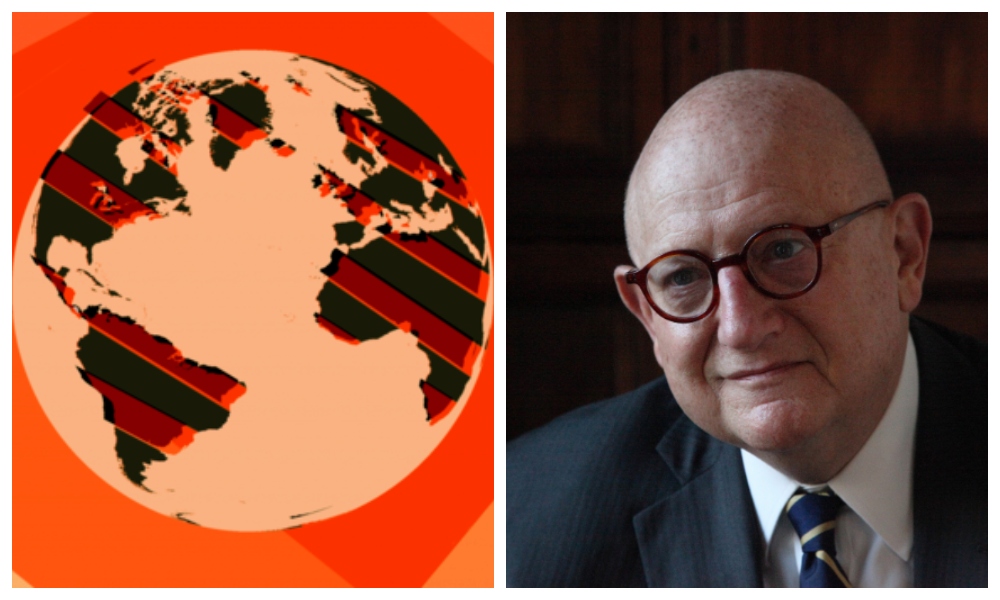April was the month when the global anti-Semitism news became largely associated with conspiracy theories that linked the Jewish people to the outbreak of the COVID-19 pandemic. From Australia to Germany to Iran to the United States, media reports poured in detailing incidents where either Jews or Zionists were charged with creating the pandemic, profiting from the pandemic, ignoring social distancing or being killed by the virus as a way of signaling God’s anger. As depressing as these stories were, the one story that seized my attention was the key appointment of a senior official at the Department of Health and Human Services (HHS) whose recent tweets included the most objectionable of anti-Semitic, dog-whistle tropes.
In late April the White House announced the appointment of former Trump campaign consultant Michael Caputo as Assistant Secretary for Public Affairs at HHS. Immediately before the announcement, Caputo deleted tens of thousands of tweets—dozens of which were uncovered by CNN. Among those recovered were a number of highly derogatory, racist tweets about Chinese people and attacks against George Soros and the Rothschild family.
In a friendly Twitter exchange with Jack Posobiec, an alt-right figure who frequently posts the white supremacist symbol “1488” (88 being a reference to “Heil Hitler”), Caputo wrote that “Soros’s political agenda REQUIRES a pandemic.” In late March, Caputo tweeted out a photo of Soros with the tagline, “[t]he real virus behind everything,” followed by skulls and crossbones.
You don’t have to agree with George Soros’ politics to appreciate that Caputo was making use, wittingly or not, of classic anti-Semitic tropes. Caputo uses language about Soros that differs very little from the language of white supremacists and neo-Nazis. It is the language and imagery of the famous forgery the Protocols of the Elders of Zion. It is the story of controlling, malevolent Jewish elites. It is the type of speech that has been called out as clearly anti-Semitic when Hungarian Prime Minister Viktor Orbán and his right-wing allies in Hungary have demonized Soros. Calling Soros a deadly “virus” is exactly the type of dehumanizing imagery the Nazis used against Jews in the run-up to the Holocaust.
Some might argue that since Soros has been portrayed on the right as a deeply polarizing figure in an age of profound ideological divides, these references are not necessarily anti-Semitic. But as the Anti-Defamation League has pointed out as far back as 2018, “Soros’ Jewish identity is so well-known that in many cases it is hard not to infer that meaning. This is especially true when Soros-related conspiracy theories include other well-worn anti-Semitic tropes such as control of the media or banks; references to undermining societies or destabilizing countries.”
If the Soros references are not odious enough, the Rothschild allusion used by Caputo is even more damning. In mid-March of this year, Caputo referred to the Rothschilds as a “family that craves control.” Anti-Semitic themes relating to false ideas about the Rothschild family’s imagined attempts to control world events for evil purposes goes back centuries. It is at the heart of the conspiracy rants that anti-Semites such as Henry Ford and the Nazis used with catastrophic effects in the 20th century. Although the family does not play a meaningful role in today’s left-right divide in the U.S., when people talk about the Rothschilds and control, they don’t have to use the word “Jew” to send a message to the haters that Jews are fair game.
What little that has been reported about the Caputo recovered tweets has focused on the shocking Sinophobia. As far as I can tell, only one story from the Jewish Telegraphic Agency about the anti-Semitic aspects of Caputo’s tweets has appeared in the media. This lack of criticism is disheartening.
There is, of course, a strong partisan aspect to the Caputo tweets. There is great danger in allowing anti-Semitism to be used as just another tool of partisan warfare. Thus, I have concluded that it is usually not helpful for someone like myself, who has strong ties to the Democratic party, to criticize the administration for failings related to anti-Semitism. It is much more helpful when individuals on the left call out anti-Semitism on the left and individuals on the right call out right-wing anti-Semitism.
Nonetheless, engaging in this type of dog-whistle anti-Semitism should provoke strong negative reactions in a healthy democratic society—whether the objectionable statements come from a Trump administration official or one of Jeremy Corbyn’s allies in the British Labour party. When an individual who is appointed to a senior U.S. administration position can tweet anti-Semitic as well as Sinophobic bigotry and get away with not even a slap on the wrist, it is a sign of how desensitized we have become to certain types of hate speech. It is an indication that, at least for now, we may be losing the fight against the haters.

